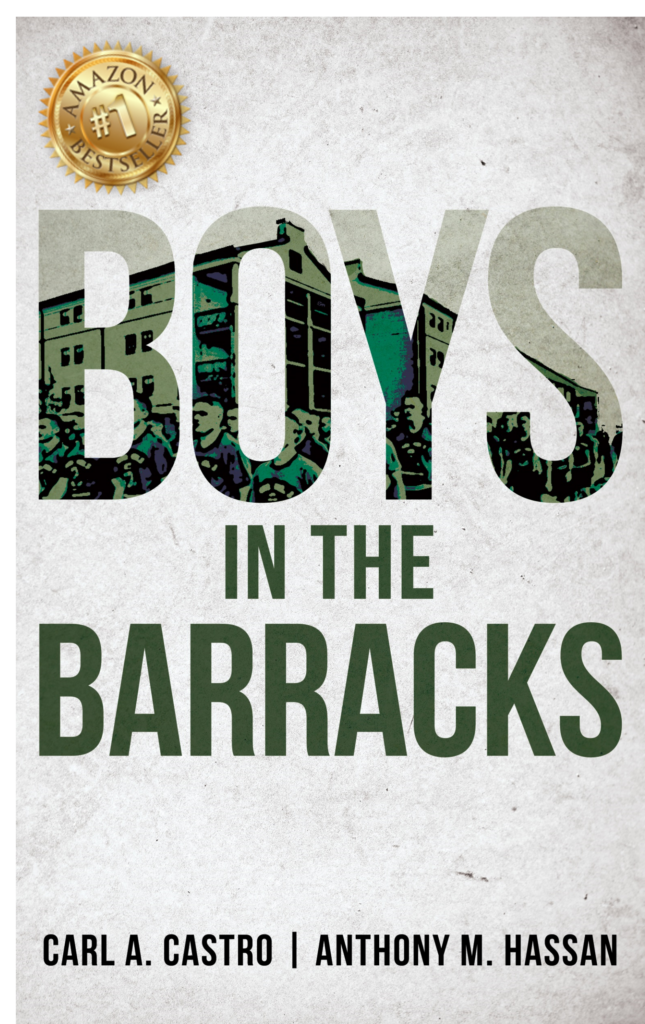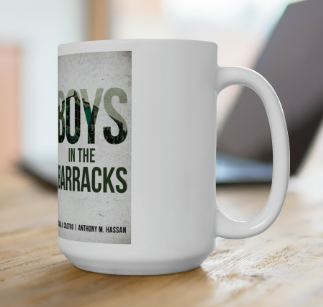
In the most candid description of Army life ever produced, Castro & Hassan vividly capture what soldiers think, say, and do in their ground-breaking book Boys in the Barracks.
Presented from the perspective of the soldier, Boys in the Barracks will thrill, shock, anger and challenge many perceptions of Army life.
IN THEIR WORDS
Here is a sample of soldiers’ views contained in this innovative work describing Army life from a military cultural perspective:
On Why Soldiers Serve: “Proud to wear the uniform.”
On The Barracks: “They harp on having clean barracks but you can only polish a turd so much.”
On Discipline: “I guarantee you after a couple of sessions behind the tree line…he’d straighten his shit out.”
On Boredom: “…it’s a whole lot of hurry up and wait and standby to standby…”
On Being on Profile: “I can say, ‘I got a broken neck.’ They’ll say, ‘You just weak.’”
On Mental Health Stigma: “People will judge you…” “Now I feel people think I’m weak.”
On NCO Leadership: “A good NCO leads and not bosses. Someone that’s going to be right there next to me doing the same shit I’m doing…”
Barracks [ˈberəks] NOUN: a building or group of buildings used to house soldiers.

Meet the Authors

Anthony M. Hassan
Hassan was born in Chicago, Illinois, and grew up like most inner-city kids in a neighborhood with diversity, parks and recreation sports programs, and unsupervised summers. He held several jobs from a very early age as a paperboy, busboy, and K-Mart cashier before joining the Army in 1980 as a radio operator. In 1995, he transitioned to the Air Force as a military social worker where he participated in peacekeeping operations in Saudi Arabia and East Africa and as combat stress control officer during Operation Iraqi Freedom. He served as a clinical professor at the University of Southern California in his first post-military role and is now the inaugural CEO of the Cohen Veterans Network. For more on Anthony’s background click here.

Carl A. Castro
Castro was born at a charity hospital in Kansas City, Missouri, and grew up in the government projects before moving to a small town in the Midwest. He has held a variety of unskilled jobs, including working as a gas station attendant, a wildcat oil rigger, and a janitor before joining the Army as an infantryman at the height of the Cold War. Since leaving the Army as a colonel, where he participated in a number of peacekeeping and combat campaigns, he has been serving as a tenured professor for the past ten years at the University of Southern California where he is educating the next generation of social workers. For more on Carl’s background click here.

